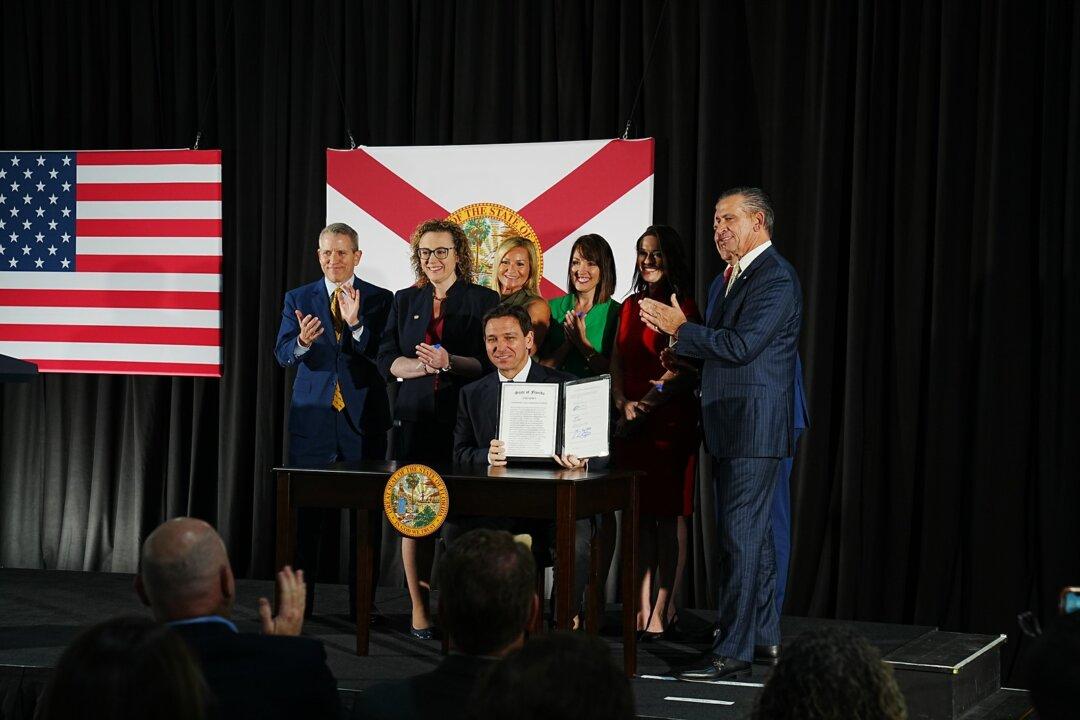After a flurry of bill-signing throughout the week, Florida Gov. Ron Desantis signed into law two more measures on May 12—one banning central bank digital currency (CBDC) in the state, and the other protecting the privacy of gun buyers.
Allowing centralized digital currency would give too much power to the federal government, DeSantis said at a press conference in Fort Myers. And credit card companies shouldn’t be able to flag transactions of gun retailers and purchasers, he said, before signing the two bills.





